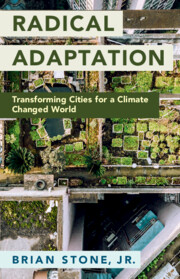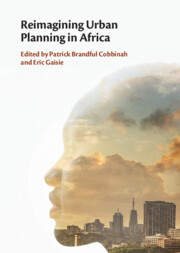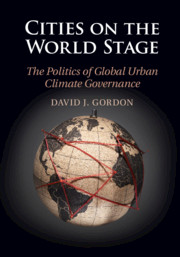Cities and Environmental Change
Environmental issues have always burdened cities and their residents. This volume analyses how cities have solved past environmental challenges to provide a framework on which to build solutions to the problems caused by the climate crisis. It sets urban environmental crises within the socio-technical history of urban development. With six application chapters that provide rich and detailed examples of urban environmental transitions - including water resources, air quality, and public health - this book promotes better understanding of how urban environmental change takes place across a wide array of social-ecological-technological systems. It illustrates the process of urban environmental transition and the role crises play in shifts in urban environmental policy. Readers of the book will gain a deeper understanding of urban climate action and activities for future action. It is invaluable reading for students, researchers, and policymakers in environmental sustainability, climate change, urban studies and planning, and public policy.
- Explores the effect of a range of environmental events, both acute and chronic, on cities
- Includes case studies from cities from all over the world to provide a basis for suggested future actions
- Chapters include clear sections which suggest actionable solutions to environmental challenges
Reviews & endorsements
'Part of the fascination of urbanization is the ability of urban places to simultaneously be a source of crisis, and also its solutions. Solecki's analysis brings this tension to the fore. He helps the reader to scrutinise trajectories of urban risk and resilience as expressions of imbalance in power, knowledge and action. This is an important book for all those interested in the progressive potential - and wary of the regressive danger - of cities: students, scholars, policy makers and committed city dwellers. This is a guide to understanding the forces shaping who wins and losses (including the non-human), in struggles for sustainability across the urbanized world we are making together.' Mark Pelling, University College London
'This excellent book is an important read for any member of the public interested in how we can urgently address climate change, and is essential for students interested in learning more about effective and significant action to mitigate against climate breakdown. Bill Solecki is one of the world's leading experts on city based climate action, and the book reflects his deep commitment to this issue. It will benefit researchers, practitioners and policy makers not just interested in climate breakdown - although we all must be - but also in areas such as sustainability, urban studies, planning, and public policy. It's an important and essential work. Bravo!' David Miller, former Mayor of Toronto and author of Solved: How the Great Cities of the World are Fixing the Climate Crisis
'Solecki offers a masterful synthesis of interdisciplinary research on urbanization and environmental change, crafting a practical and adaptable framework for understanding the evolving relationship between cities and the environment. Drawing on a rich tapestry of global case studies and historical insights, this book provides a structured yet flexible lens for examining urban transformation across time and place. Essential reading for big-picture urbanists, planners, and sustainability scholars alike.' Michail Fragkias, Boise State University
Product details
July 2025Paperback
9781108463027
322 pages
229 × 152 mm
Not yet published - available from July 2025
Table of Contents
- Foreword Debra Roberts
- Acknowledgments
- Part I. Framing Chapters:
- 1. Setting climate change within the narrative of urban environmental crises and transformation
- 2. Why do cities face environmental crises?
- 3. What about cities make them places for environmental problem solving?
- 4. Framing how urban systems change
- Part II. Application Case Chapters:
- 5. Natural resource supply and scarcity: securing urban drinking water
- 6. Environment degradation and quality: urban air quality
- 7. Public health: disease and epidemics
- 8. Environmental risk and hazards: acute and chronic events
- 9. Resource use efficiency and pathways to environmental sustainability: the three R's (reduce, reuse, recycle)
- 10. Mobility, Livability and Sustainability: Balancing economics, ecology, and equity
- Part III. Synthesis Chapters:
- 11. Urban environmental crises and policy transitions
- 12. Opportunities to advance environmental policy transitions and transformative climate action
- References
- Index.







